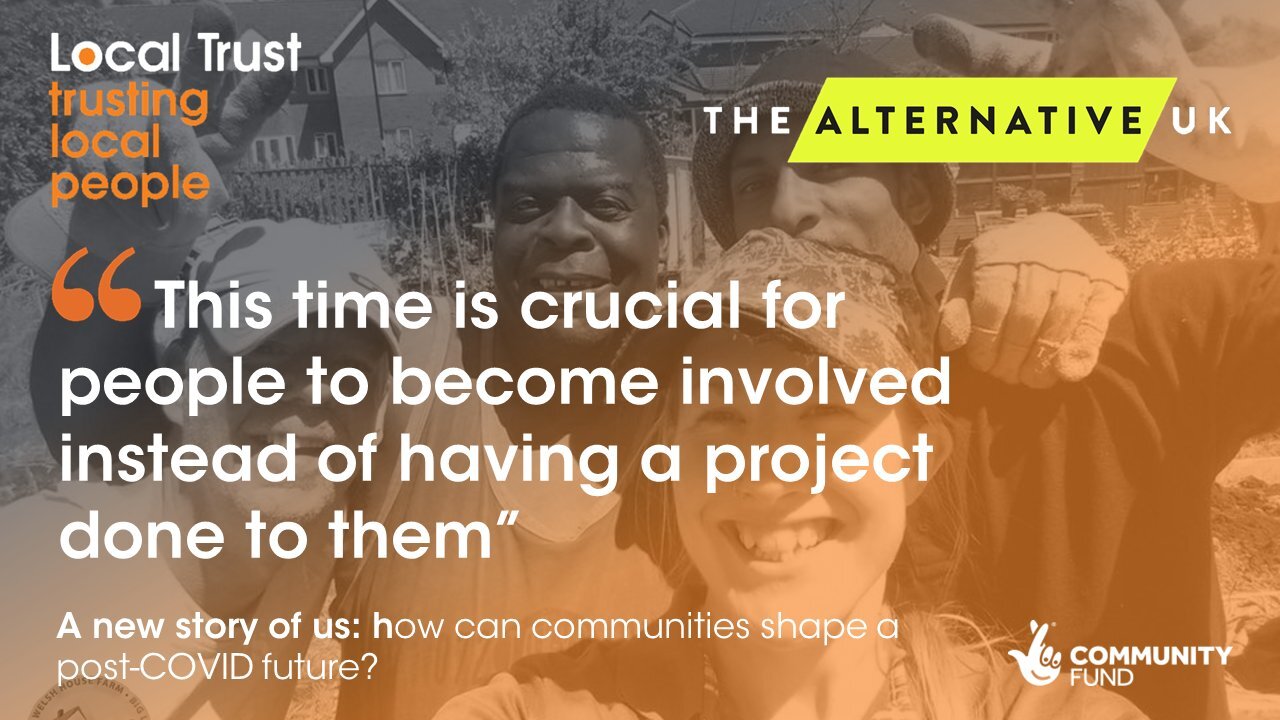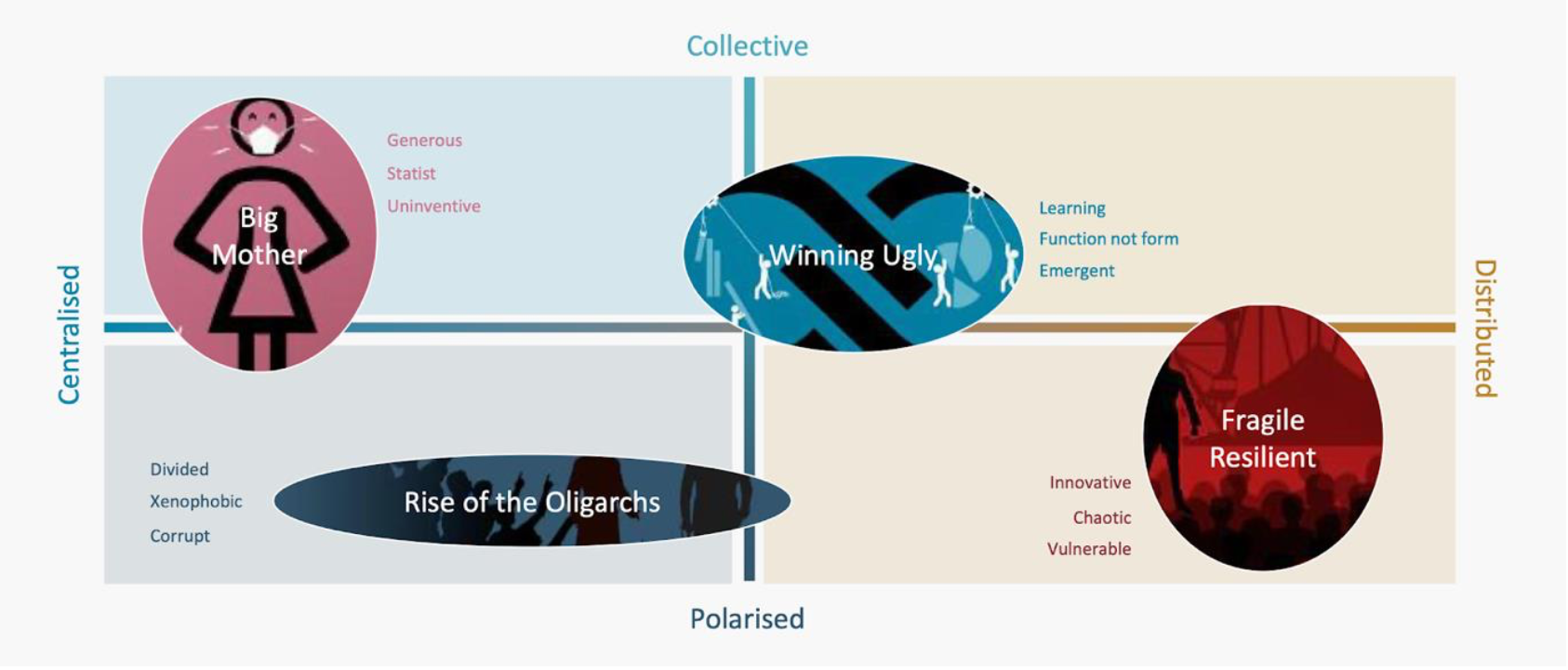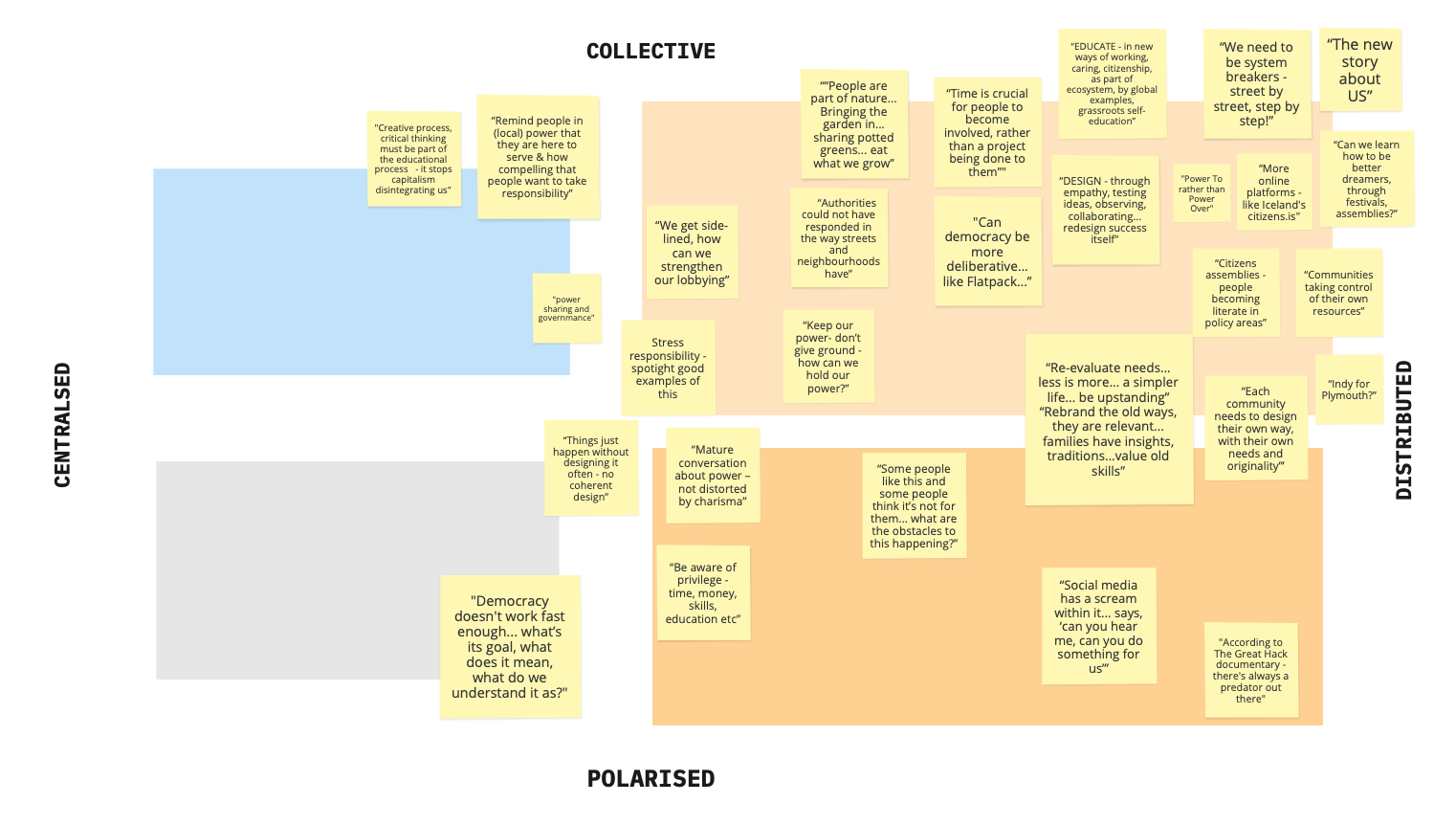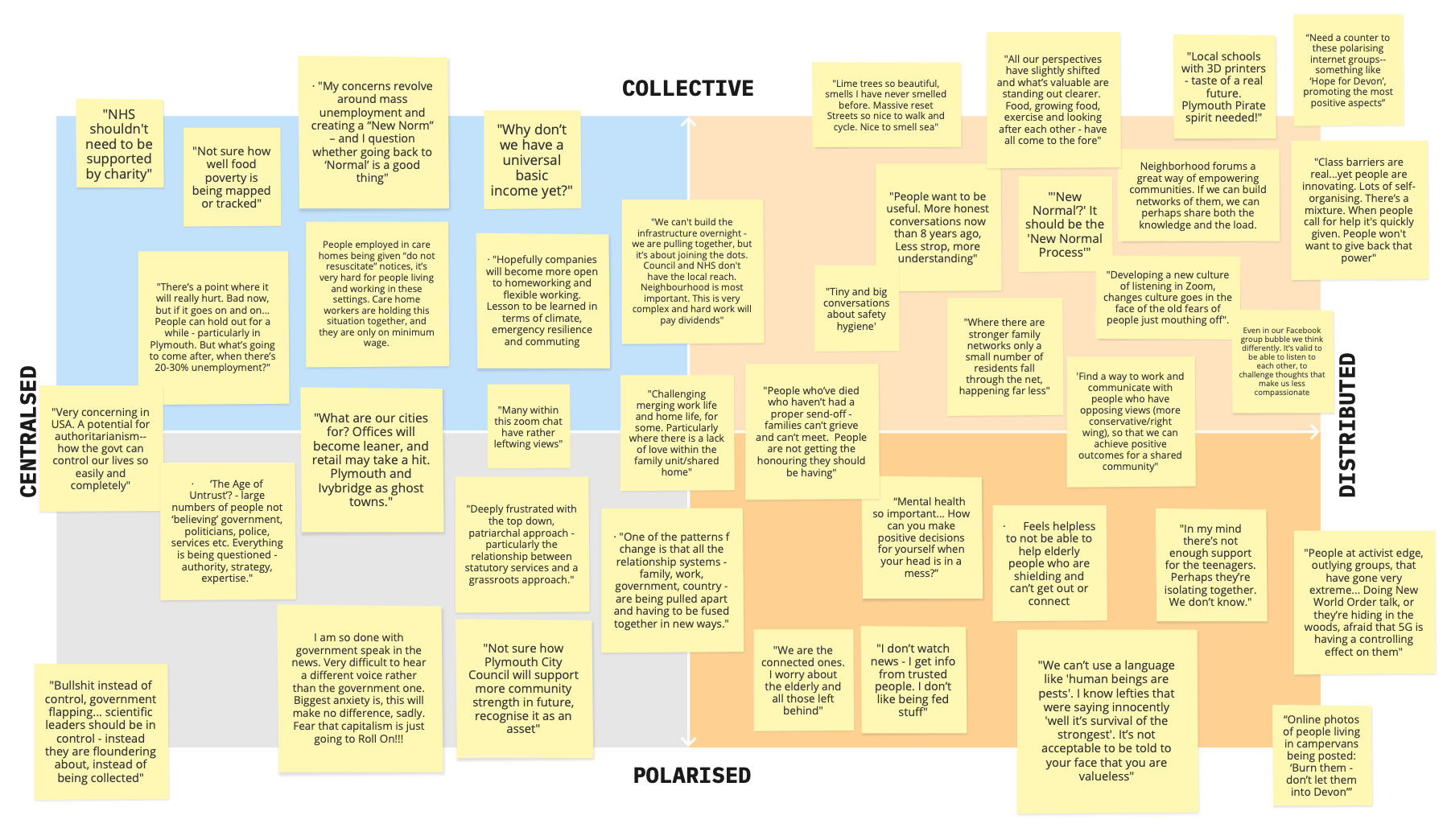A New Story of Us: what role can communities play in shaping the post-COVID future?
Posted on 27 Oct 2020 Categories: Blog, Coronavirus, Cross-posts, Local initiatives
by The Alternative UK
A/UK’s joint report with the Local Trust, where Plymouth residents wrestle with COVID, and point to the future
Communities and localities have often responded quickly, effectively and innovatively to the challenges of COVID-19 (see some of our corona-coverage). At A/UK, we stay in touch with the diverse and energetic communities in Plymouth and around South Devon, whose social and civic enterprise – far as they are from the metropolis – is always inspiring and to be learned from.
So when the Local Trust asked us if we wanted to help them map how communities were responding to the challenges of the coronavirus, it seemed obvious that we would assemble a diverse mix of the Plymouth networks we have engaged with since 2017.
Conducted over March and April 2020, the conditions weren’t perfect – like everyone else, we were using online tools (like Zoom, Miro, and Google Docs) to capture conversations, content and contributions. But in three sessions, we felt we captured enough difficulties and possibilities, optimism and anxieties to be able to make a substantive report.
And here is it – A New Story of Us: what role can communities play in shaping the post-COVID future? (website, and PDF download). From the executive summary:
Key points
- Community responses to COVID-19 have revitalised the language of local autonomy and self-reliance
- There is optimism coupled with apprehension at the scale of change already happening and the prospect of shaping a different future
- A renewed belief that communities have the ability to make change happen and an opportunity for a narrative shift around community power
- Greater willingness to become actively involved with local groups in Plymouth that have a say over neighbourhood changes
Introduction
When COVID-19 struck Britain, it was a country already divided along multiple axis, highlighted by the Brexit vote. Plymouth voted strongly to leave the European Union, a move explained by local residents as wanting to regain what felt like a loss of power and control over decisions that affect their everyday life.
This chimes strongly with the experience of communities around the country during COVID-19 who demonstrated collective action and the ability to make things happen – particularly in the early stages of the pandemic, before local authorities had formulated their response.
At the beginning of the pandemic, there was a brief sense that the crisis might level the playing field. Instead, it amplified existing inequalities and exposed the fragility of much of the social fabric of England: food banks mobilised on an unprecedented scale; demand for government loans soared and a lack of access to basic services highlighted glaring holes in our infrastructure.
The impressive resident-led initiatives that arose during coronavirus responded to these needs. Talking to residents of Plymouth, it is possible that communities may feel able to regain the power they felt had been lost.
Indeed, could this be the beginning of a new way for communities and authorities to work together where local voices have higher value and community networks are included in plans for the future? Or will the state seek to regain control of local and national policy in a bid to rebuild the country under its influence?
More here. Also see this recent A/UK post on the enormous potential of “lockdown volunteers” for local revitalisation.
We should also mention that “A New Story of Us” also grapples with some of the Local Trust’s recent future-thinkng, specifically the Long Crisis Network’s Our COVID Future (web post from LT’s James Goodman, PDF document, A/UK blog here). Our facilitation method also uses futuring and imagining exercises – and we mapped that material (statements from participants) onto the Long Crisis Network’s map/matrix, which sets out four scenarios for how localities might respond to COVID.
Go and have a look on pages 9-11 of the PDF – but we can show you here the shift towards a more optimistic, ambitious response to COVID-19 (the top right quadrant) as our sessions proceeded.
NOTE: The report itself is a condensation of a wider and deeper archive of material, which lays out a lot more content from the Plymouth participants, and explains both our chosen methodology (Dynamic Facilitation), and explores how we used online tools (including word clouds and IBM Watson’s AI) to interpret the digital material gathered. If you are interested in this, please contact us and we can share the bigger document.
This was originally posted on the Alternative UK blog on 12 August 2020.
Want to keep up-to-date with more articles like this? Sign up to our newsletter.
Posted on 27 Oct 2020 Categories: Blog, Coronavirus, Cross-posts, Local initiatives





